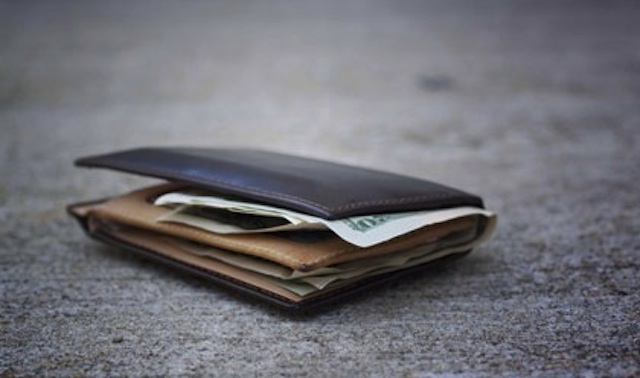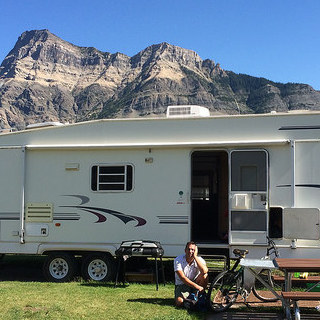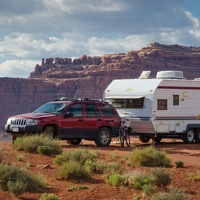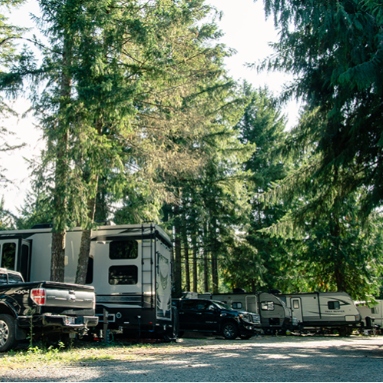What to do when you lose your wallet
This snowbird was in Arizona when his wallet went missing. Here's how he handled it.

While we were RVing in Jerome, Arizona, I lost my wallet.
The moment it went missing, an overwhelming feeling of sickness enveloped me. The money was secondary, as my identity was far more important. My driver’s license, credit cards, bank card, social insurance card, health card and others too numerous to mention just disappeared. We were miles from home, both in distance and time travel. To make the situation worse, we were in the United States and unfamiliar with the laws and government agencies that could help us.
Here’s a list of some of the steps I had to take:
Report the loss to the police
In Arizona, the Motor Vehicle Division does not legally require you to report the loss of your wallet to the police, but it is highly recommended to prevent identity theft. According to the law, my wallet falls into the category of lost, stolen or just disappeared. The police in Jerome were sympathetic and helpful, providing me with a case number. A police report is necessary in case the credit card companies investigate fraudulent purchases or your wallet is connected to another crime.
In Canada, federal law limits your liability for unauthorized charges within the first 24 hours after you have officially reported your loss. If you delay reporting your loss from two to 60 days, you are liable for up to $500. It is prudent to phone within the first 24 hours.
Cancel credit cards
After searching for phone numbers on old bank statements and using a 1-800 number, I found it was easy to cancel my credit cards and bank cards and order new ones. Keep in mind that with no access to bank statements, you have no idea if you have been robbed. With no credit cards, it was cash only. My wife made the comment that I was now a "kept man.”
If your credit card is used for automatic deduction to pay bills such as your cable or phone bill, it will be necessary to contact the companies directly and provide them with the new credit card number.
I also learned 1-800 numbers don’t always work. If you are using a toll-free number located in the United States, the call will go through. If you are using a 1-800 number into Canada, the call may not go through, depending on your cell phone plan and provider. Prepare to be frustrated.
Get a new driver’s license
To drive in the United States, you need a valid driver’s license. The key word is “valid,” which translates into possessing an actual plastic license. Driving without a license is against the law in any state and can result in a fine or worse. With no valid license and my wife not driving, travelling in a 39-foot motorhome now became a problem. Since the Province of British Columbia issued my license, only it can assist by placing a lost/stolen status on your record and issuing a temporary license until you return home. This temporary license, however, takes seven to 10 days to process and reach you by mail. Another option is for you to arrange the services of a private courier such as Fedex.
The contact number for ICBC Customer Service is 1-800-950-1498 and a helpful web page from ICBC is icbc.com/driver licensing.
I found out the new BC Services card serves as both a medical card and driver’s license. If your name, however, on your old B.C. driver’s license does not specifically match your official birth certificate, you need to contact Medical Services in Victoria and provide them with a copy of your birth certificate. It appears that no nicknames or extra letters attached to your name can appear on your license. Cost of this service is $17. Contact BC Services at 604-683-7151. The other option is to officially change your name.
Social insurance number
Finally some good news from Service Canada. The federal government has discontinued issuing the plastic S.I.N. card in order to prevent identity theft and fraud, as well as saving $1.5 million per year. The government will continue to issue the nine digit number and Canadians will be required to know that number. A replacement card, if requested, can be obtained at a cost of $10. If you already have a plastic card, do not carry it with you for identity purposes.
Report to the Canadian credit agencies
Just contacting your bank and changing your credit/bank cards is not enough. It is also necessary to contact Equifax Canada (equifax.ca, 1-800-465-7166) and Trans Union, (transunion.ca, 1-866-525-0267) to report the loss. The purpose of these two agencies is to establish a credit rating and score as well as prevent identity theft. They will place a fraud alert on your credit file. If someone has your S.I.N., blank cheques and driver’s license, they can obtain a line of credit or even a mortgage in your name.
It’s interesting to note there are 12,000 Canadians who report identity theft each year.
Prevention
It is highly recommended that prior to travelling you make a photocopy (front and back) of your driver’s license, health cards, social insurance card, passport and any other legal documents that may identify you. Also leave a copy at home in a secure place or with trusted family or friends. Many of these documents can only be replaced in person and in Canada. This also applies to the many other type of cards I carried from Starbucks, BCAA, Save-On Foods, etc.
Service Canada provides a useful web page about losing your wallet as well as a page for travellers called Lost or Stolen belongings abroad.
Once your cards have been replaced, change all passwords and continue to monitor your bank and credit accounts for any suspicious activity.








